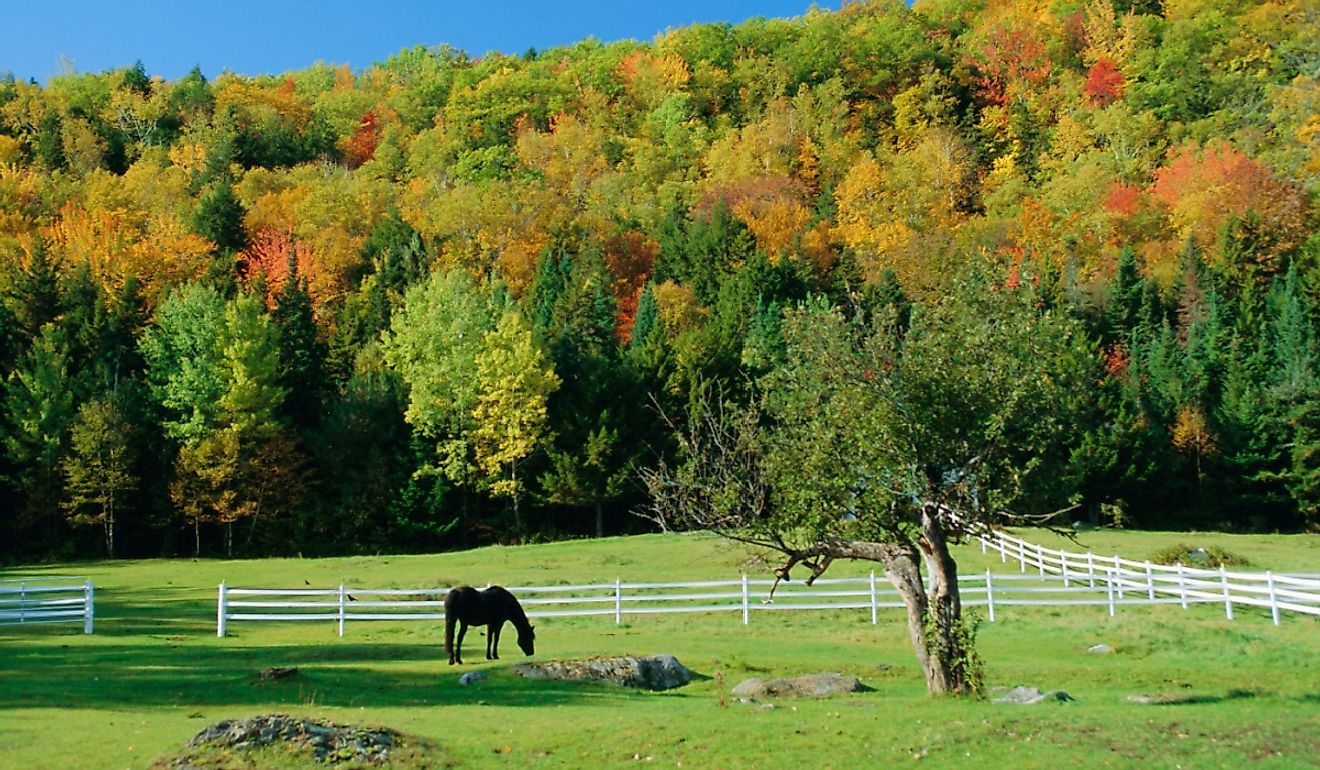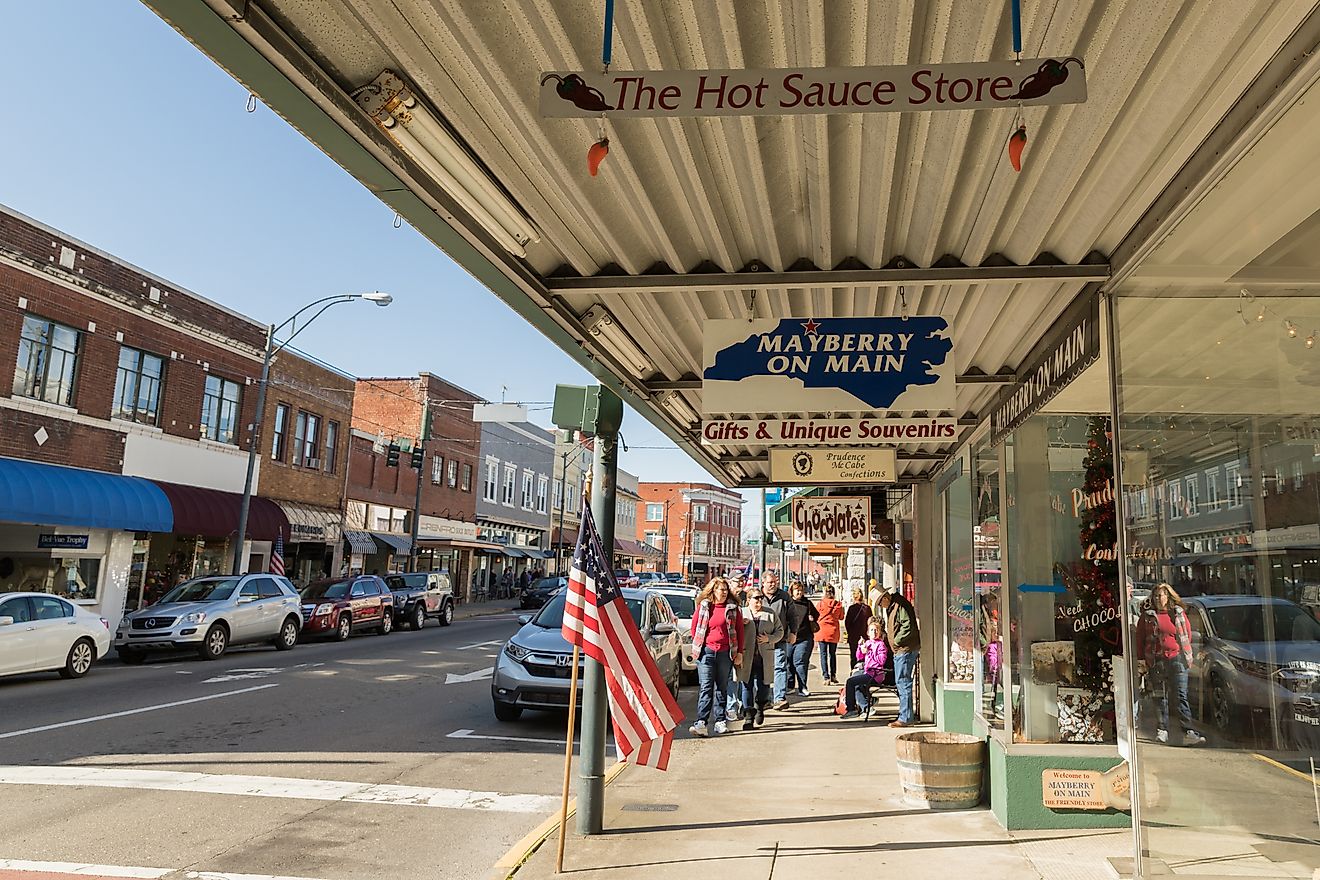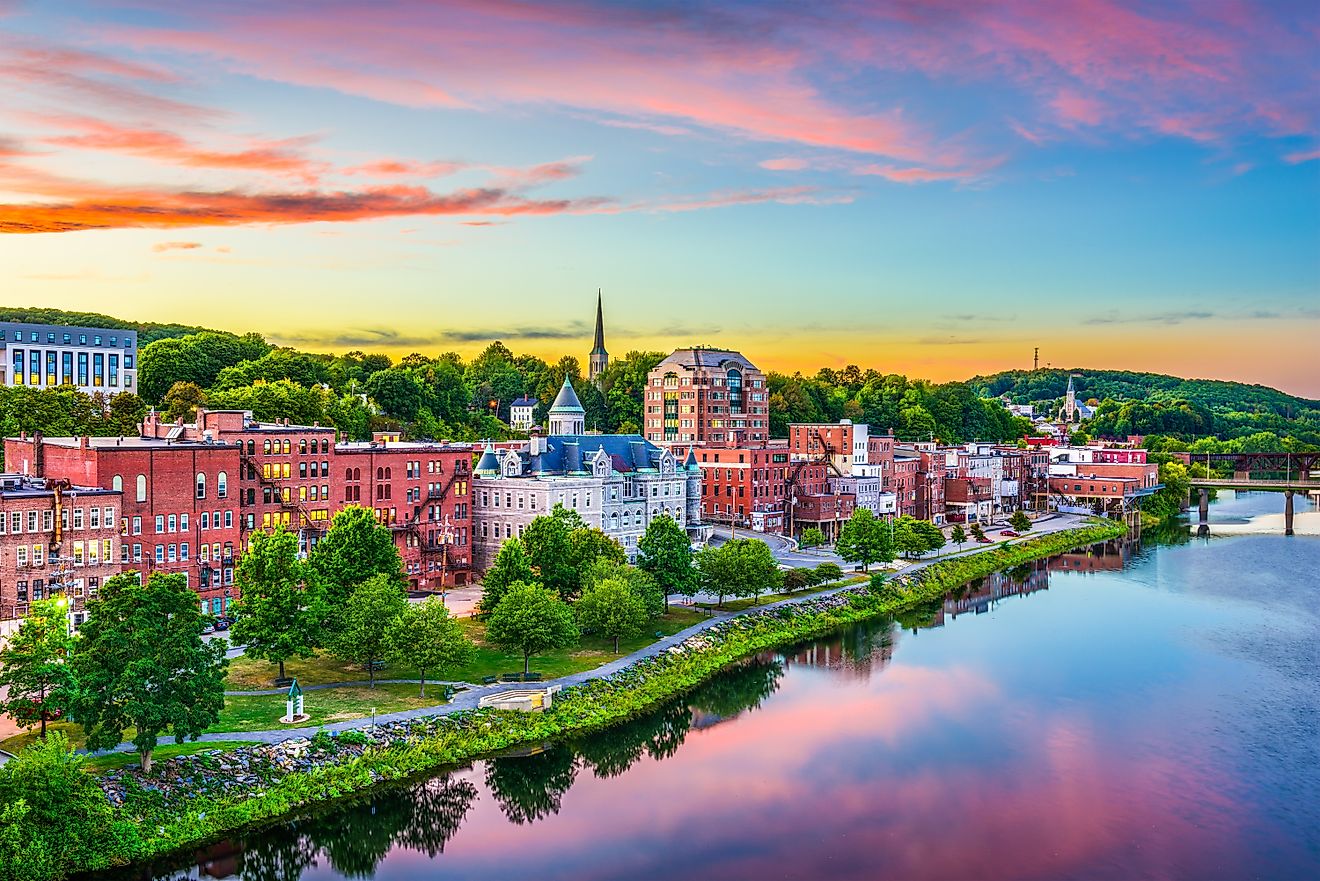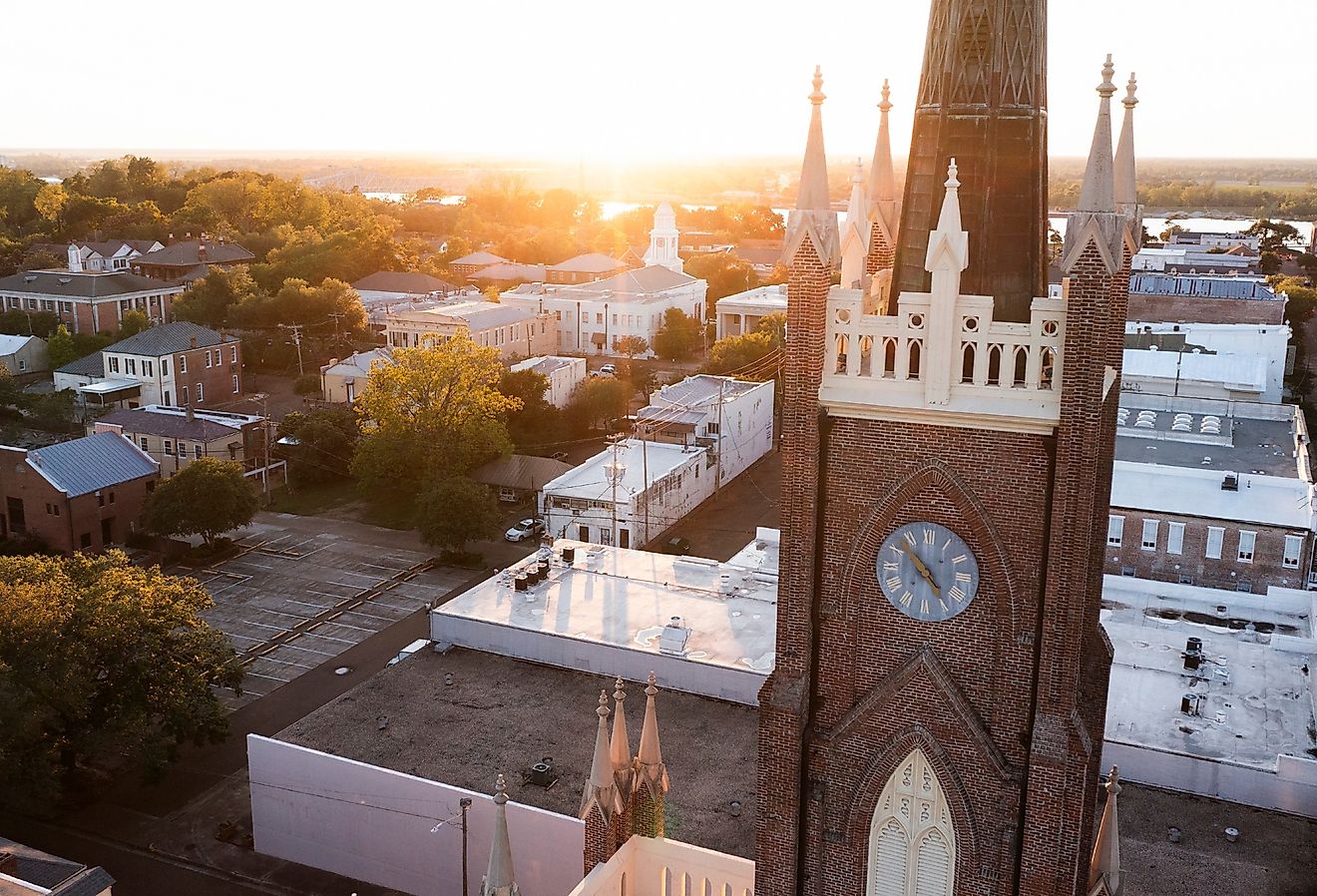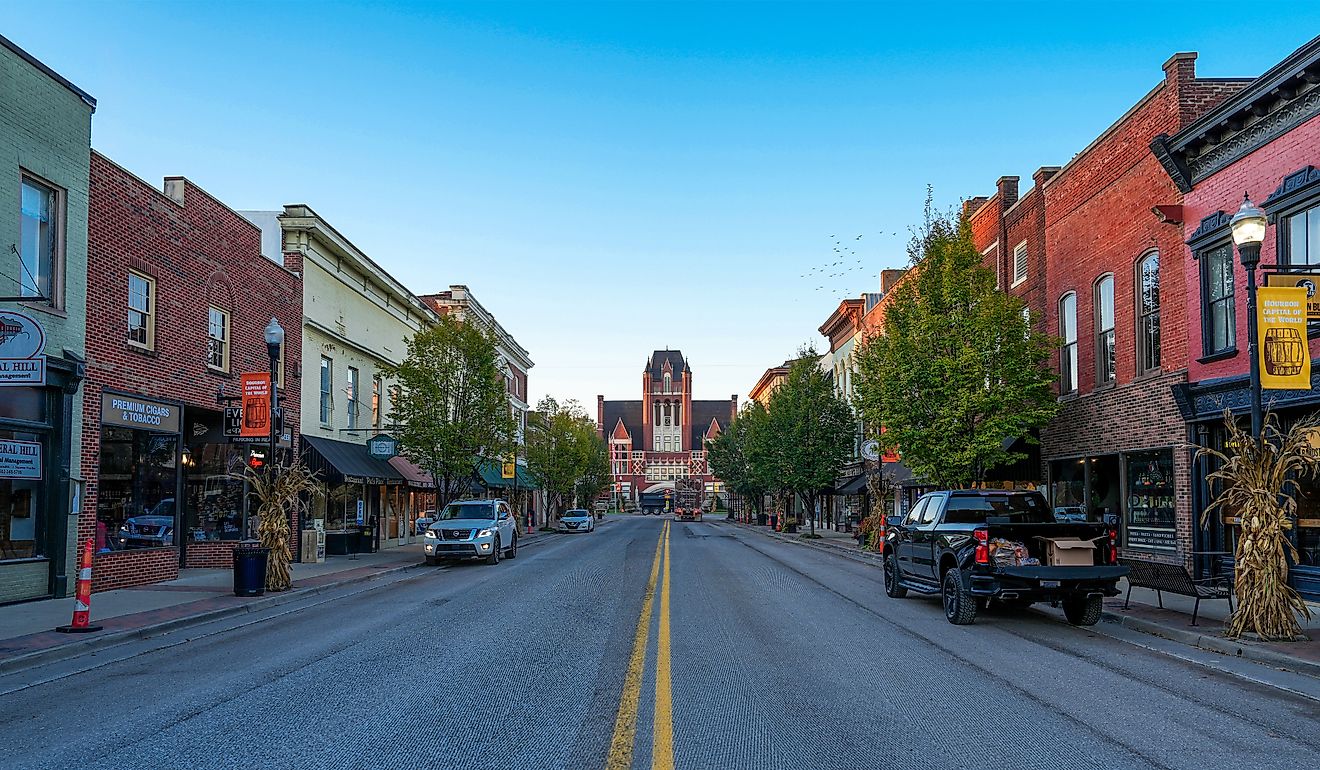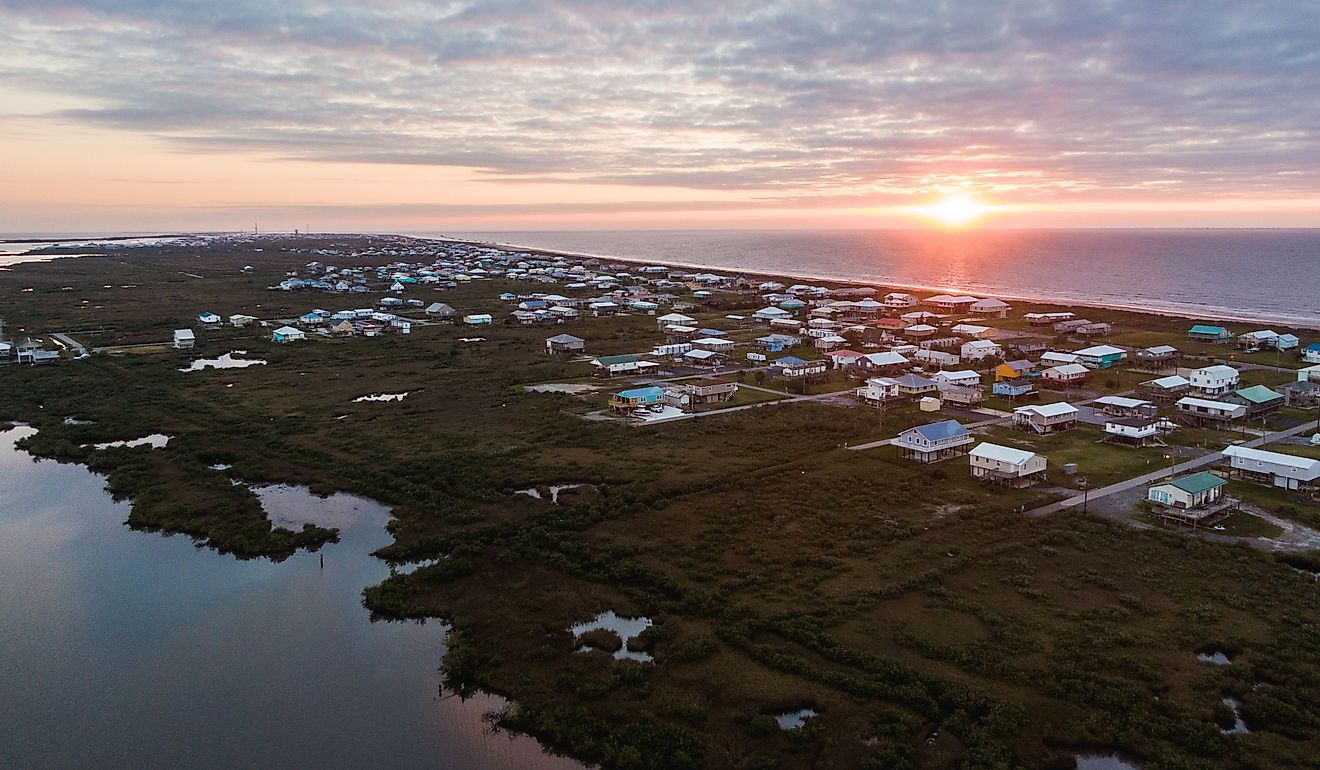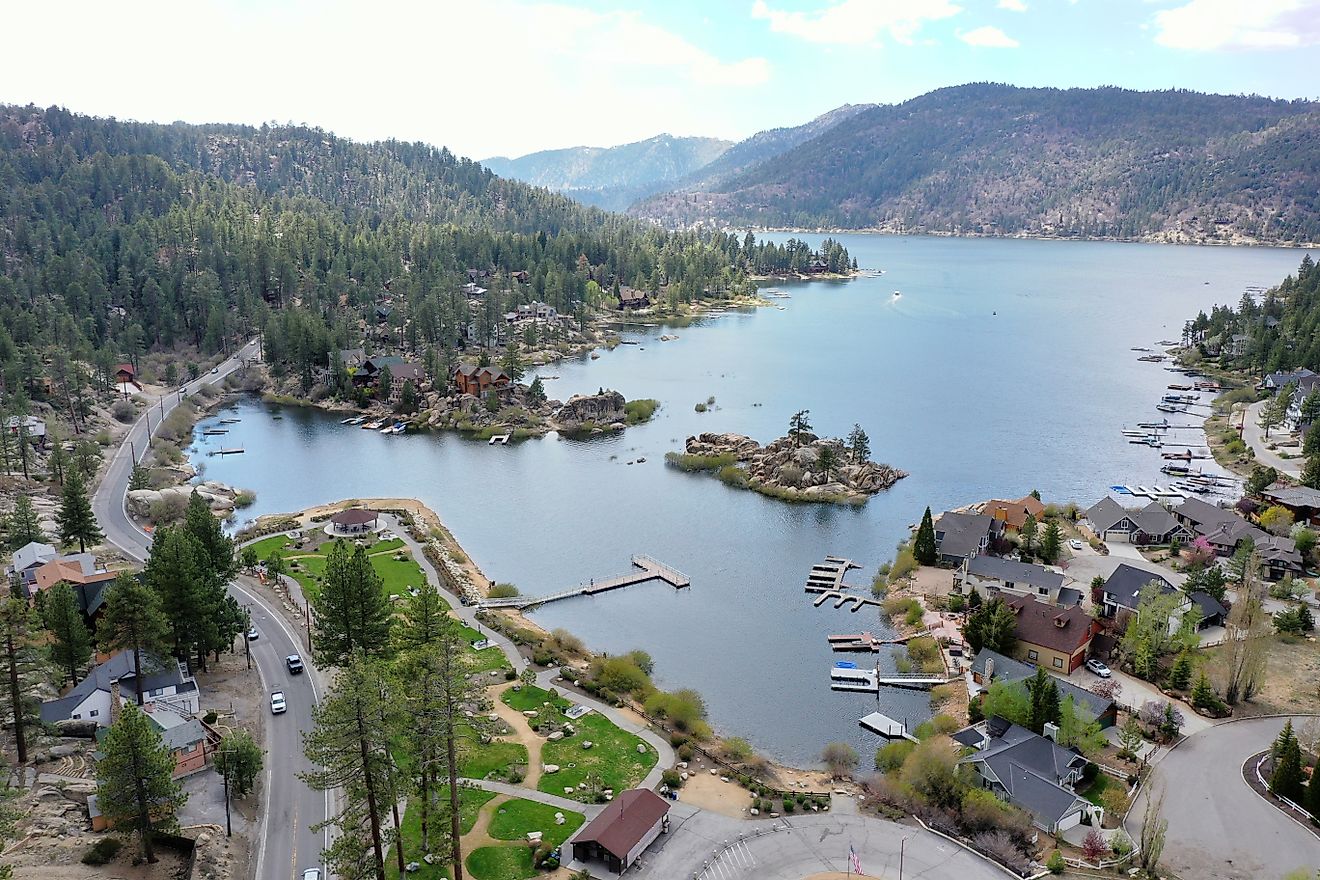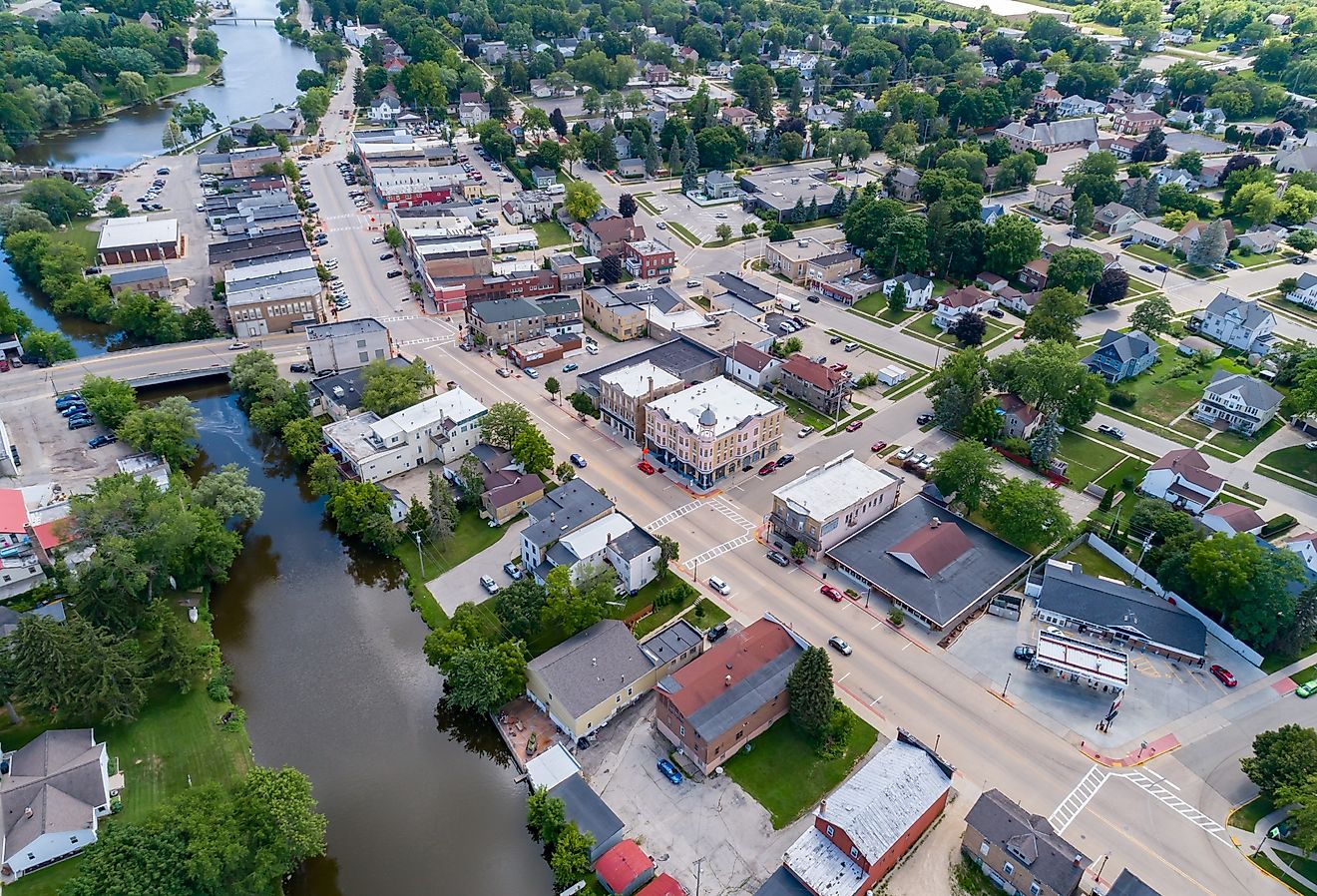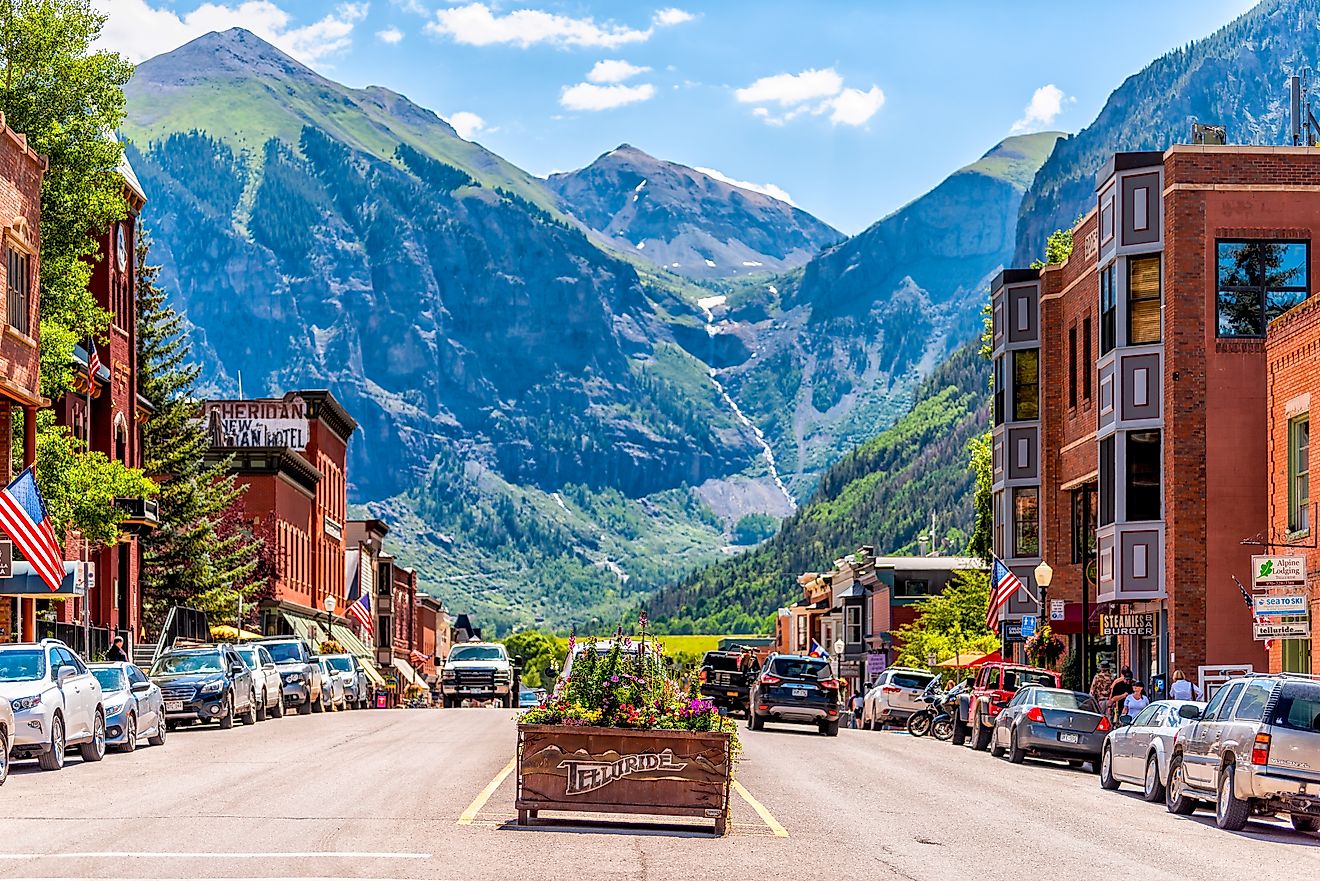
10 Towns in Ohio with a Rich History
Most people recognize Ohio for the Rock and Roll Hall of Fame and its sprawling tracts of cornfields, but few realize the rich history embedded in the Buckeye State. With origins tracing back to the 17th century, Ohio has evolved into a bustling destination featuring world-renowned cities. The state is dotted with numerous historical gems, offering an exciting journey through its storied past.
The small towns of Ohio are the true lifeblood of the state, preserving its authentic historical and cultural heritage. They are home to unique landmarks and culturally rich communities that safeguard the tales, legends, and traditions defining Ohio. From old-world architectural styles, featuring Victorian buildings and historic mansions, to American war monuments, these towns are some of the most historic places in Ohio.
Marietta

This historic riverside town, located at the confluence of the Ohio and Muskingum Rivers, is renowned as the first permanent settlement of the Northwest Territory. Exploring its quaint downtown reveals a variety of historical relics and Victorian-style structures. A notable example is the Gothic Revival First Congregational Church, founded by pioneers and constructed in 1807. The Campus Martius Museum offers insights into the history of America's first organized settlement. Visitors can enjoy a rustic stay at the century-old Lafayette Hotel.
Marietta celebrates its riverboat heritage with the annual Ohio River Sternwheel Festival, attracting over 100,000 visitors for various family-friendly events. The Antique Mall of Marietta is a perfect stop to find a historical memento of your visit.
Chillicothe

Chillicothe, the first capital of the Northwest Territory and later Ohio’s first state capital in 1803, is a small town in Ross County brimming with state history. Surrounded by picturesque natural landscapes and rolling hills, the Ross County Historical Society is dedicated to preserving Chillicothe’s and the region's storied past.
Outdoor enthusiasts can explore various natural spaces, including the Hopewell Culture National Historical Park, which showcases over two millennia of history through ancient American Indian earthworks and mounds. Additionally, the 1,800-acre Great Seal State Park offers scenic biking and hiking trails, campsites, and hunting areas.
Lebanon
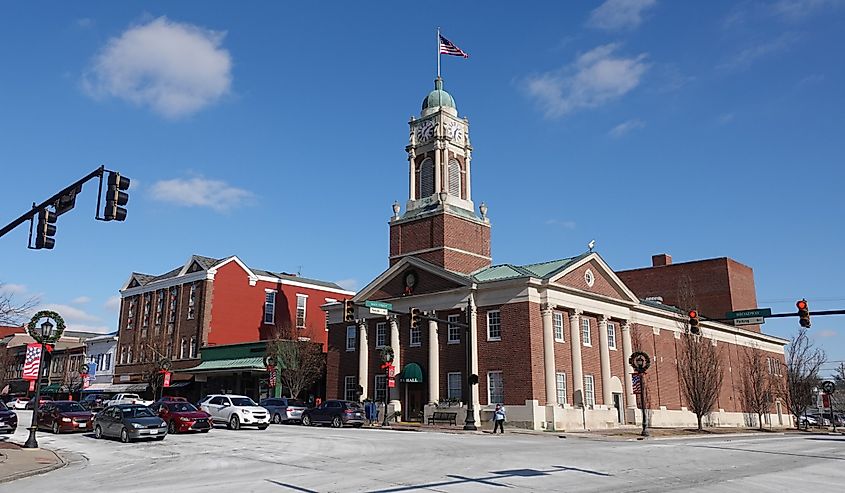
Founded in 1802, Lebanon in Warren County has been visited by iconic figures such as Mark Twain, Charles Dickens, and several American presidents. A journey into its rich history can begin at the Warren County Historical Society, which boasts a vast collection of artifacts and artwork detailing regional history, including local Native American exhibits. Art enthusiasts should not miss the Harmon Museum, with its extensive collection of art and artifacts that preserve southwest Ohio’s heritage. For a culinary treat and a cozy overnight stay, the historic Golden Lamb Restaurant & Hotel, operational since 1803, has hosted many distinguished guests and continues to charm visitors with its rustic ambiance. Nature lovers will appreciate Miller Ecological Park, spanning 97 acres with wildflower meadows, lush gardens, and serene nature trails.
Greenville
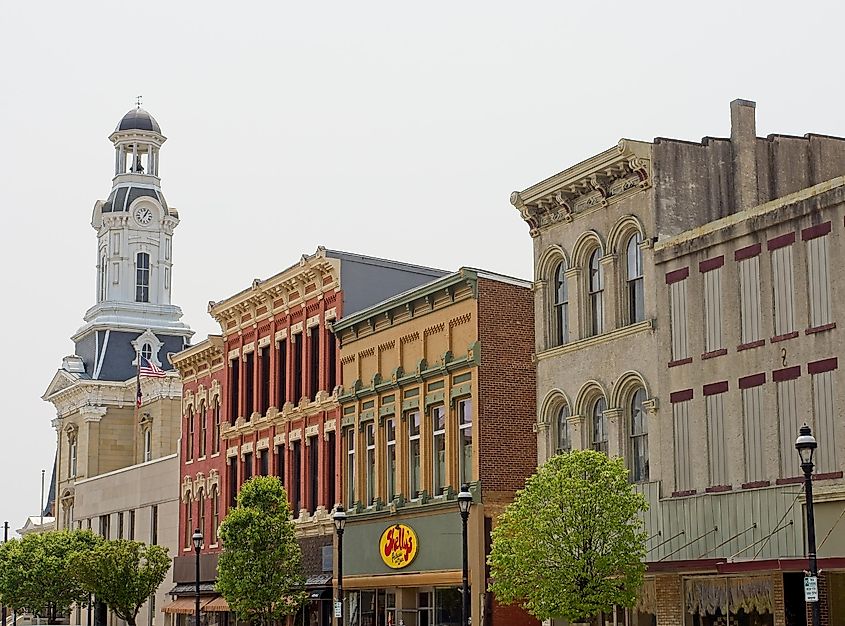
Situated in Darke County near Ohio's western edge, Greenville is a small town with a population of about 13,000. It holds historical significance as the site of the 1795 Treaty of Greenville, which facilitated settlements in the Northwest Territory. The town features several landmarks, including the impressive Garst Museum, listed on the National Register of Historic Places and housing over 300,000 exhibits that highlight diverse aspects of the American experience. Greenville is also home to Darke County's oldest industrial structure, Bear’s Mill.
However, Greenville isn’t just about history; it also boasts beautiful outdoor scenery. Unity Park provides an excellent setting for enjoying the outdoors, with its scenic walking and biking trails, playgrounds, and a fishing spot spread over 60 acres. Additionally, theater enthusiasts can experience captivating performances at the historic St. Clair Memorial Hall.
Germantown

Germantown, a small community with a population of about 6,000, has a rich German heritage, as suggested by its name. Established by German settlers in 1804, this modestly sized town, spanning approximately four square miles, is steeped in history. The Veterans Memorial Museum Foundation in Germantown plays a significant role in preserving an intimate part of United States history, honoring the courageous men and women who sacrificed for the country.
An interesting historical feature of Germantown is one of Ohio’s remaining covered bridges. The 1870 Germantown Covered Bridge, listed on the National Register of Historic Places, offers a glimpse into the state’s past. A visit to Germantown is also an opportunity to explore its inviting outdoors. The expansive Germantown MetroPark features scenic trails and elevated boardwalks, ideal for relaxation and nature walks.
Piqua

Piqua, one of Ohio's oldest towns, boasts a history that dates back to the 19th century. Situated in the fertile Miami Valley, the town is surrounded by lush park spaces and beautiful natural landscapes. History buffs can delve into a rich cultural experience at the Johnston Farm and Indian Agency. This 250-acre site, featuring ancient Indian mounds and remnants of historic canals, provides insights into more than 2,000 years of early civilization.
For those interested in collectibles, the Apple Tree Gallery in Piqua offers a remarkable selection of items. Outdoor enthusiasts can visit Farrington Reserve, a 27-acre nature reserve with tranquil trails leading to a picturesque waterfall. Additionally, the reserve offers access to the Great Miami River, where recreational activities such as fishing, boating, kayaking, and wildlife viewing can be enjoyed.
Granville

Granville, a small college town, offers a blend of laidback scenery and unique New England charm, alongside a rich historical heritage. The town's history is meticulously preserved at the Granville Historical Society Museum. This charming facility houses a dynamic collection of artifacts that illuminate over two centuries of the town's past. At the Robbins Hunter Museum, visitors can admire one of Ohio's earliest examples of Greek-Revival architecture and explore artifacts from the 18th and 19th centuries.
For accommodations, consider the historic Buxton Inn, which has been a staple in the town since the early 1800s. Additionally, outdoor enthusiasts can visit the Spring Valley Nature Preserve, featuring 45 acres of woodlands with picturesque trails, perfect for a leisurely stroll.
Perrysburg

Perrysburg, a quaint village along the scenic banks of the Maumee River, is not only known for its numerous parks but also for its historical significance. Located in Wood County within the Toledo metropolitan area, it is home to Fort Meigs, North America’s largest wooden-walled fortification. The Fort Meigs Historic Site offers visitors a chance to explore this unique structure and hosts reenactments of the War of 1812 on Memorial Day, commemorating the site's historical importance.
The great outdoors is a major attraction in Perrysburg, with a plethora of parks for adventurers to choose from. Riverside Park, one of the town’s oldest public spaces, has been providing a serene atmosphere and stunning views of the Maumee River since 1915. Another notable spot is the Norma Stark Memory Garden and Labyrinth, located in the town center. This beautifully maintained garden offers a peaceful setting for visitors.
Hillsboro

Hillsboro, nestled in Highland County, offers a delightful mix of historic charm, picturesque natural landscapes, and a unique quirky attraction. For those interested in the town's history, the Highland County Historical Society showcases a range of artifacts that capture the essence of Hillsboro and its surrounding areas. The quaint downtown area exudes an Amish ambiance, with inviting eateries and storefronts along its peaceful streets. Coffee lovers can stop by Sassafras Kitchen & Coffee Bar for a robust cup of coffee and comforting food.
Outdoor enthusiasts will find Rocky Fork State Park particularly appealing. The park offers a variety of activities, including hiking, fishing, swimming, and boating. Don't miss the opportunity to take a photo with the town's most unusual landmark, known as the world's largest horseshoe crab.
Coshocton

Located about 63 miles from Columbus, Coshocton offers a refreshing retreat from urban life and is a haven for history buffs. A highlight is the Historic Roscoe Village, which provides an insight into life in the 1800s when the village was founded by James Calder. The Johnson-Humrickhouse Museum further delves into local history, showcasing Native American, Asian, and 19th-century art.
Aside from its rich history, Coshocton boasts ample outdoor activities at Coshocton Lake Park. This recreation hub offers camping, hiking, fishing, picnicking, and biking. For those with a sweet tooth, a visit to Roscoe Village Sweets & Treats is a must.
Final Thoughts
Exploring these small towns in Ohio evokes a sense of nostalgia, as they are portals to bygone eras. They house distinctive historical landmarks and sites that preserve Ohio's rich past. Yet, history isn't their only allure; they cater to a wide range of travelers with diverse interests.
